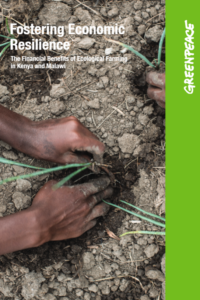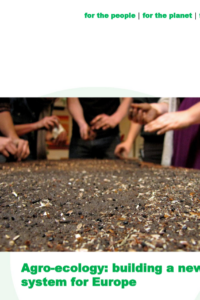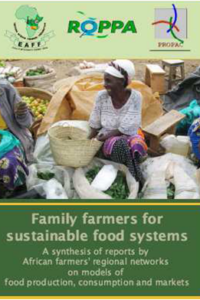This report primarily focuses on agroecology projects and the views of Caritas France’s partners in the Global South. The wide range of practices is tailored to providing local solutions for sustainable agriculture in myriad different regions. All the initiatives are built on the principles of empowerment, action, resilience and integration of the social dimension.
Tackling Hidden Hunger. Putting Diet Diversification at the Centre
The scourge of “hidden hunger” or micronutrient deficiency affects around two billion people worldwide who lack adequate intake of vitamins and minerals in their diet. While several international and regional initiatives are underway to combat malnutrition, and specifically micronutrient deficiency, these have largely focused on the approaches of nutrient supplementation and food fortification at the expense of dietary diversification, considered the most durable solution to hidden hunger. Read more
Agroecology: key concepts, principles and practices
Recognizing the urgent need for capacity building in agroecology the Third World Network organized training courses to equip key actors with a comprehensive understanding of the principles and concepts of agroecology and to provide evidence of success through illustrative examples. This booklet describes the main learning points from the training courses held in Indonesia (2013) and in Zambia (2015)
REPORT | Fostering Economic Resilience. The Financial Benefits of Ecological Farming in Kenya and Malawi
The evidence in this report suggests that it is more profitable for small-scale farmers in Africa to practise ecological farming that uses no chemical pesticides or fertilisers than it is to use chemicals. Presenting the results of new fieldwork in Malawi and Kenya, this report shows that farmers practising agroforestry (involving the use of natural ‘fertiliser trees’
instead of chemical fertilisers) and ‘Push-Pull’ technology, which eliminates the need for chemical pesticides) achieve higher incomes and yields than those practising chemical-intensive agriculture.
REPORT | Agroecology: building a new food system for Europe
Introduction
Over the past 50 years, our food system has become both more globalised and more heavily dependent on cheap raw materials, chemical inputs and mechanisation. Big business has moved in, with control of our food increasingly concentrated in a handful of multinational corporations operatingthroughout the food chain. The social and environmental impacts of this system are devastating: small scale farmers and food companies worldwide are driven out of business; obesity and food poverty are rife; while taxpayers and citizens foot the bill as one food crisis follows another. Read more
Family Farmers for Sustainable Food Systems
A report from the europeAfrica campaign showing how family farming is the basis for modern food provision in Africa. Read more





